
Pronia — Stronger Together
Stronger Together - Μαζί πιο δυνατοί
Supporting Dementia Care for Greek Tasmanians
The “Stronger Together - Μαζί πιο δυνατοί” initiative, launched by the Greek Community of Tasmania in collaboration with PRONIA Melbourne, offers culturally and linguistically sensitive support services for people living with early-stage dementia, their carers, and families. This program is made possible through funding from the Australian Government and aims to provide a safe and responsive support system in both Victoria and Tasmania.
Why It Matters
Recent data shows that 28% of all people living with dementia in Australia were born in non-English speaking countries, with those from Greece making up 3%. These communities experience unique challenges, as 47% of people from non-English speaking backgrounds require more care, compared to 30% from English-speaking backgrounds. “Stronger Together” focuses on these needs, offering essential support to both those diagnosed and their carers, 50% of whom are family members providing an average of 60 hours of care per week.
Dementia-specific services
Targeting the needs of Greek-speaking Tasmanians diagnosed with dementia and their families.
Caregiver support
Assistance for caregivers, including casework, group support, and after-hours telephone services.
Educational resources
Informing families and carers on dementia care, prevention strategies, and current research.
Monthly sessions
Held in Hobart, these sessions provide a space for families and caregivers to learn, share experiences, and receive ongoing support from dementia experts.
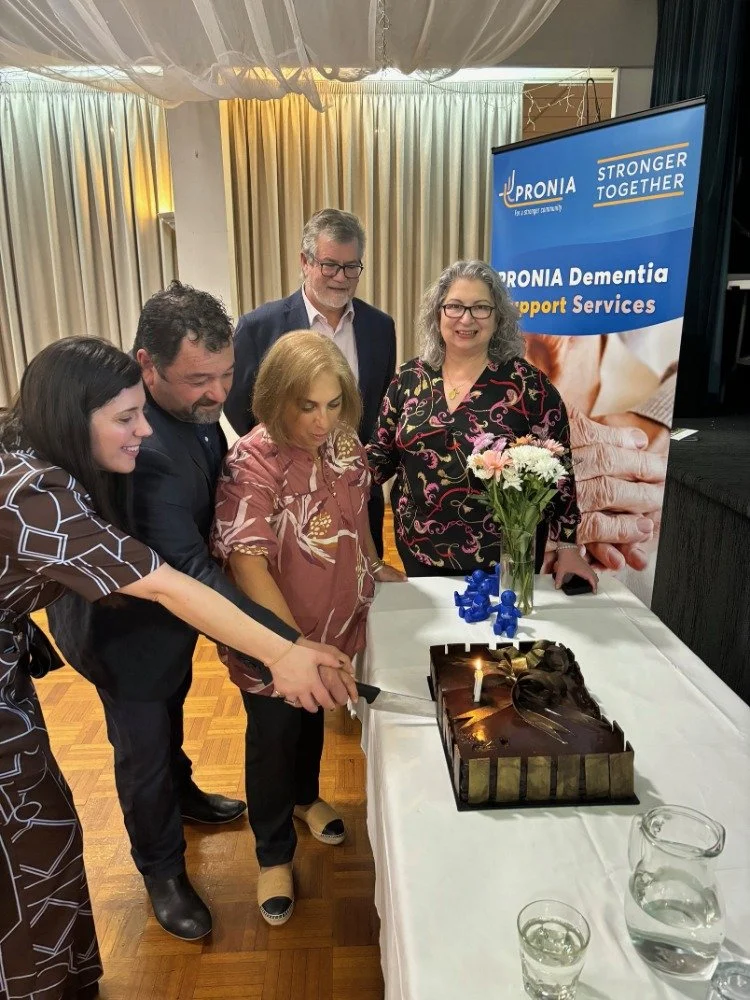
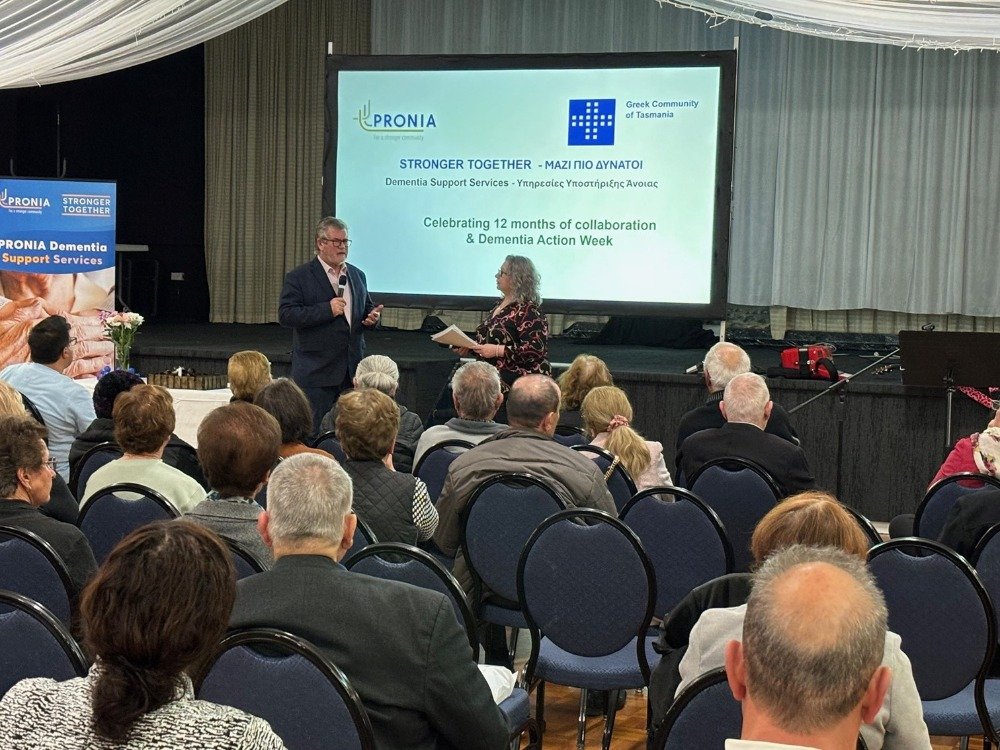
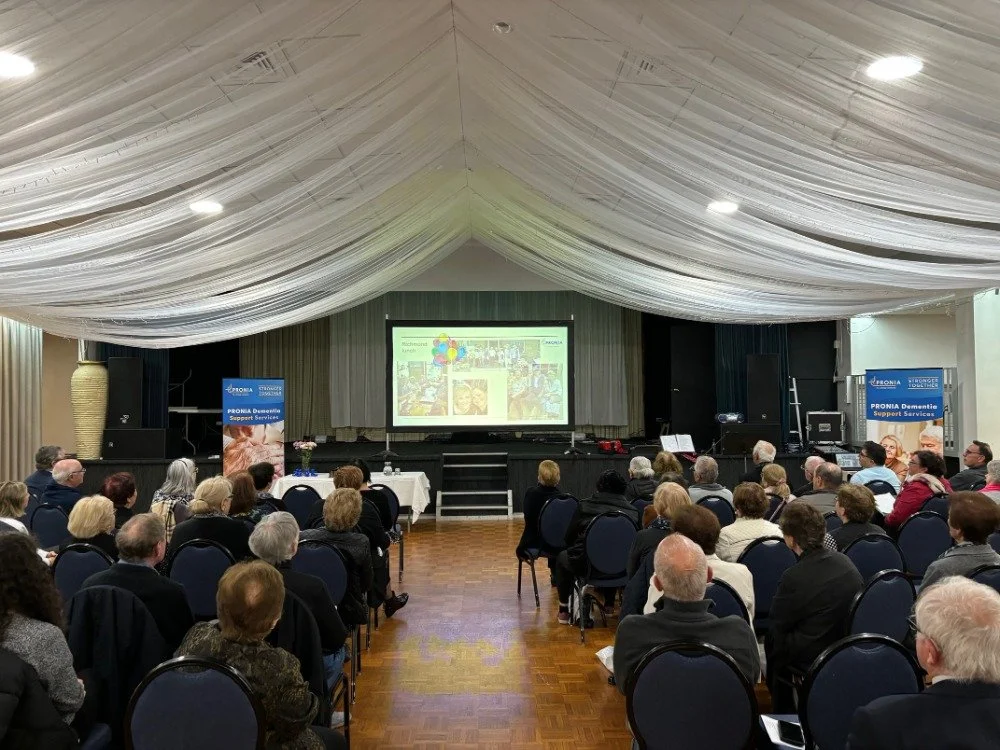
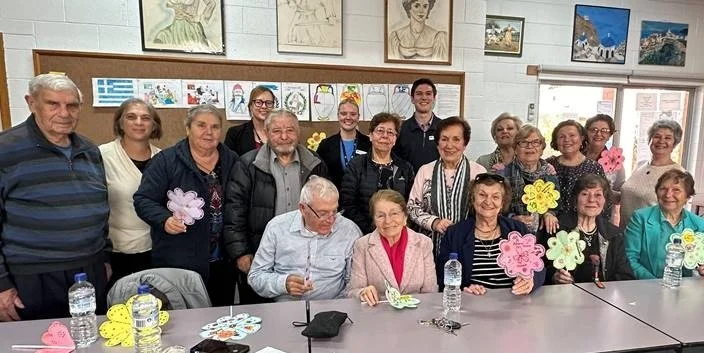

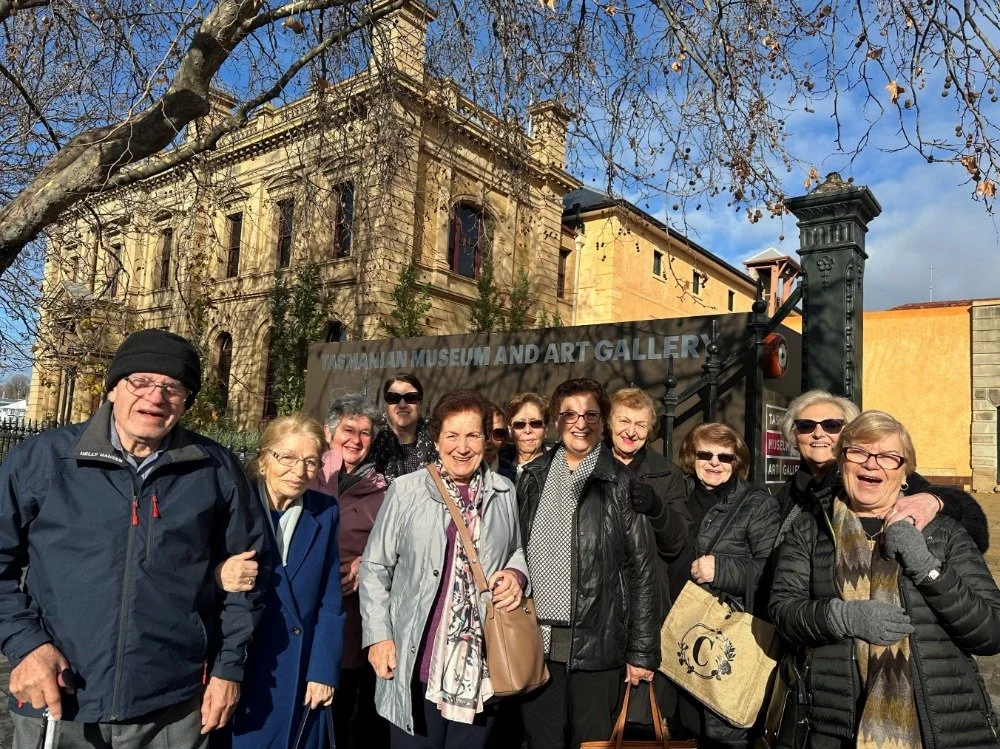
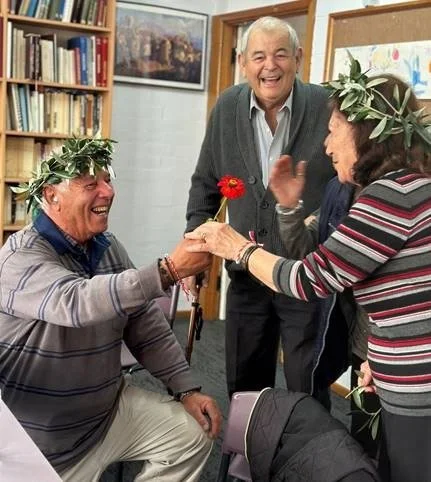
-
Dementia refers to various symptoms which affect how the brain works. Dementia is not a specific disorder.
Dementia interferes with brain function and affects daily life. The functions of the brain most affected include thinking, memory and behaviour.
People experience dementia in different ways. Onset and progression of dementia can be different for each individual. Dementia symptoms may start slow and become worse over time. There is no known cure for dementia.
The risk of dementia increases with age but it does not mean that everyone will have dementia as they age.
-
PRONIA has received funding for 3 years from the Commonwealth Department of Health and Aged Care to provide support services to people with Dementia and their carers. This new program called “Stronger Together “ is available in Victoria and Tasmania.
In addition to this new funding, PRONIA provides general support to people with Dementia and their carers.
-
PRONIA’s Dementia Support Program can support people living with dementia, their carers and families in Victoria and Tasmania. We recognise the valuable contributions by carers to provide for their family members with dementia.
This service is specifically designed to support carers and those with Dementia.
If you or your family are concerned about changes in memory, behaviour or thinking we can guide you to access the information and support you need.
We have experienced Greek English bi- lingual and bi-cultural qualified professionals who can support you to access support services that suits your needs.
-
We can provide services, information and support across Victoria and Tasmania. Our services are free and include:
Centre based Day Respite: People with early stages of dementia can come to one of 4 locations in Melbourne and Tasmania. Participation in this group enhances social connection, improves wellbeing and physical health for the participant and provide respite for carers. The group activities are structured to be culturally relevant and relevant to the participant needs.
Carer Support Groups: Carers have the opportunity to meet in person to be informed, supported and to relax. The informal groups meet monthly for 2 hours. Carers can enjoy some time away, whilst they connect, share ideas and experiences, meet guest speakers and learn new information.
Telephone Support Groups: It’s not always possible for carers to travel to other locations for respite and support. Our telephone support groups connect carers who have travel limitations, due to health, distance or other reasons. These small groups of up to 5 carers share a telephone connection for up to an hour for a group session on relevant topics.
Case support service: A specialist case support worker is available to work with the person with dementia and/ or their family and carers to provide guidance on future planning, support services and entitlements and care options to suit you and your family’s needs. Meetings can be arranged in person (your home or an office), on line (zoom) or telephone as often and when needed (within business hours)
Crisis Telephone Support: An after-hours telephone line is available to participants of the Dementia Support Service to contact if there is a crisis until 9.00pm each day of the year.
-
We provide support to all clients including clients diagnosed with dementia under a community care setting under CHSP and HCP programs and advice where additional support for dementia is required or higher care support for dementia in a residential aged care setting. In some instances we may refuse to provide certain in-home services under a flexible respite situation or social respite outside the home if a client is at risk of absconding or has specific behavioural challenges that might pose a risk to your family member or our care workforce and or external sub-contracted supplier.
-
Your General Practitioner should be the first point of contact for any assessment or if an assessment has been made by an external specialist or acute health/hospital representative, your family member’s GP should be informed, and a regular review requested. In some instances we may seek your approval to assess your family member for dementia via a geriatrician if we suspect signs of dementia and there is no current diagnosis available to PRONIA and you are not able to take your family member to a GP or family doctor for assessment.
-
Whilst PRONIA does provide support in the home to dementia clients we are not a specialist dementia care provider and training provided to our care workforce or external sub-contractors is limited to overall management of a dementia client and not comprehensive as would be to care workers who support clients in specialty dementia ward in a residential aged care or supported respite facility. PRONIA is continually seeking education for its workforce in dementia and we expect that with growing demands for dementia support that our care workforce will increase its experience in dementia needs.
-
Under the HCP Program funding additional dementia funding is available through a dementia supplement that is calculated under a set daily rate and adjusted periodically. To access the dementia supplement, a current and valid dementia diagnosis is required and an application submitted through the Case Manager supporting you or your family member.
-
There may be some out of pocket costs for dementia support if you elect to receive specialist ongoing support through a clinician specialising in dementia or if you seek dementia support through a supported accommodation respite facility through a daily charge set by the government and reviewed periodically. Initial dementia assessments can be covered under the HCP in negotiation with your Case Manager.
-
Emergency: 000
PRONIA: (03) 9388 9998 (Monday – Friday 9.00 am – 5.00 pm)
National Dementia Helpline: 1800 100 500 (24 hours a day, every day)
Carer Gateway: 1800 422 737 (Monday – Friday 8.00am -5.00pm)
Lifeline: 13 11 14 (24 hours a day, every day)
Emergency Respite: 1800 422 737 (24 hours a day, every day)
National 1800 Respect: 1800 737 732 (24 hours a day, every day)
My Aged Care: 1800 200 422 (Monday – Friday 8.00 am – 8.00pm and Saturday 10.00am- 2.00pm )
Learn more
If you or someone you know could benefit from the dementia support services, or if you would like to volunteer or contribute to this vital initiative, please get in touch.
For more information, contact the Dementia Support team at dementiasupport@pronia.com.au or call 03 9388 9998.
